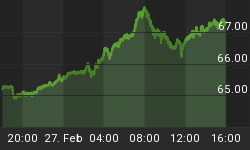The United Nations has just published a new report on the world's population. The threat of a world with standing room only has become less pressing. But as one risk recedes others loom. For the next decade or so, major problems will arise due to the different ways that countries are ageing.
In Europe and Japan birth rates have been falling for so long that their workforces are now declining. This is far from the case in America, partly because immigration has been so much faster there.
As the number of workers falls, they are less able to pay taxes to support state pensions. The resulting need for higher savings is rightly getting headline attention. There is, however, one aspect of this which is largely overlooked. This is the impact on international trade.
Europe and Japan need high savings to pay pensions. But their economies will grow more slowly, as their workforces shrink. When economies slow, they cannot absorb as much investment as before. Europe and Japan therefore need to export more of their savings and this means running higher current account surpluses.
This is not the case in America, which will grow much faster and can thus absorb much more investment. It is fortunate that the US is well placed to absorb the excess savings of Europe and Japan, because there is little prospect of the rest of the world's economy being able to do so.
This is partly because Europe, Japan and the US produce two-thirds of the world's GDP, partly because China saves enough for its own needs, and partly because so much of Latin America and Africa suffers from dysfunctional government.
This type of population imbalance hasn't occurred before, and so we need to get used to far larger surpluses and deficits on current accounts that we have had in the past. If we fail to adjust our ideas, they will be badly out of date and we will mistake normal flows for abnormal ones. If such misunderstandings persist, we will suffer from creeping or even galloping protectionism. The dangers of this happening are already apparent in the debate over America's current account deficit.
The US is using the savings of Europe and Japan to help finance its relatively rapid growth. But far from welcoming this, sadly unusual, example of the world's economy working smoothly, the current equilibrium is commonly attacked as if it were evidence that things were all awry.
The unthinking assumption that individual countries should neither export nor import large amounts of capital seems to be deeply imbedded. Even those, who are not normally moved to attack globalisation or favour mercantilism, express concern at the size of the US trade deficit.
These concerns have two bad influences. They affect policy and they affect markets. If the financial world is constantly told that the US trade deficit is unsustainable, then the dollar is likely to be weaker than it would be under equilibrium conditions.
Equally, countries such as Britain and Japan, which have seriously overvalued currencies, will find it less easy to implement sensible policies if the result causes ill-considered concern.
It is of course possible that the US current account deficit is already too large. But few seem prepared to consider the possibility that it is about the right size.
Even if the current deficit of 5% of GDP continues for the next decade, foreign ownership of US assets will only rise from about 9% to 20%. By then, the savings rates in Europe and Japan should begin to fall, as by then the numbers of those who are retired will have risen sharply.
The US deficit will then need to fall back, as foreign ownership will have reached a level from which further rises will genuinely start to pose problems. But this should happen naturally, as Europe and Japan will need to bring back the wealth they have accumulated abroad, so that the burden of paying pensions does not fall too heavily on their declining workforces.
If this process is distorted by a failure to understand its desirability, it will make for a lot of sad and unnecessary problems. If an adequate flow of savings can't move from Europe and Japan, they will have to be artificially suppressed. This will mean large and sustained budget deficits and savings which will insufficient to pay adequate pensions.















